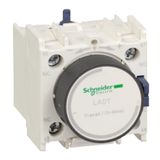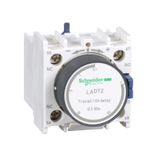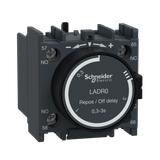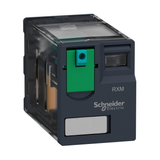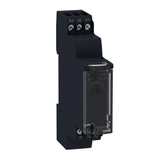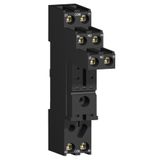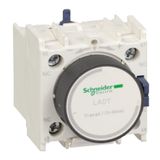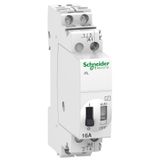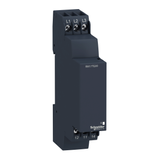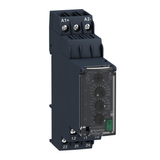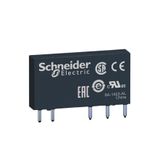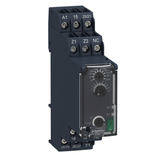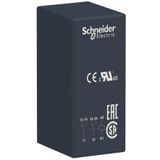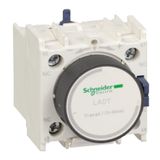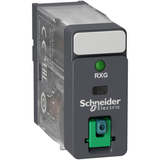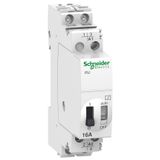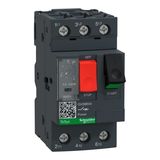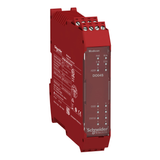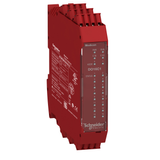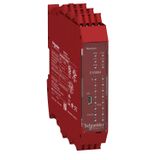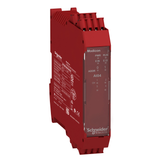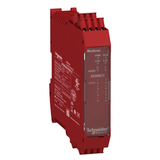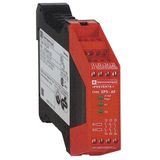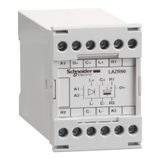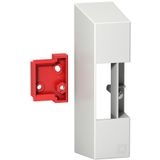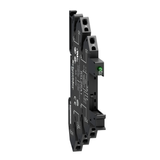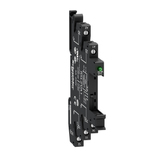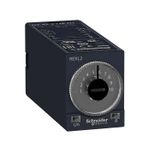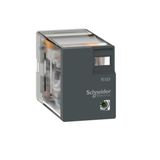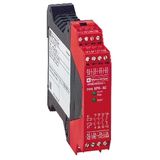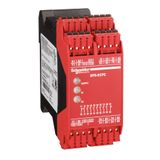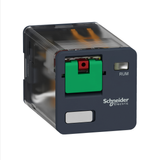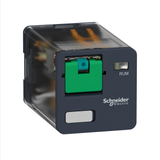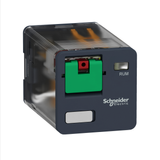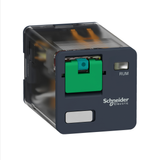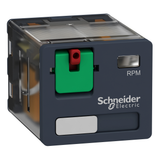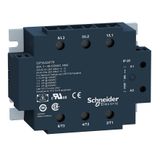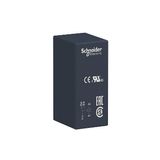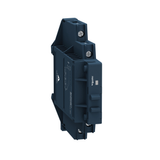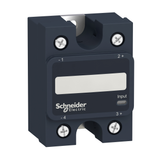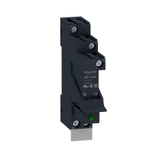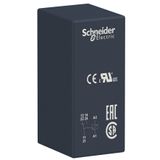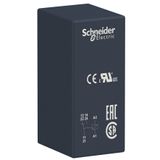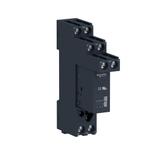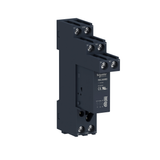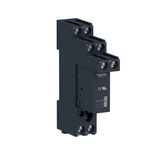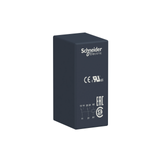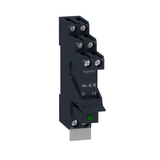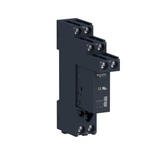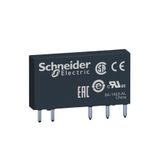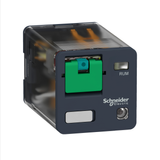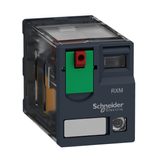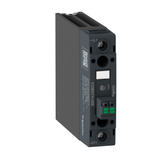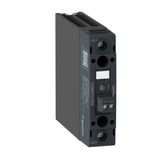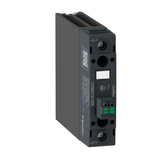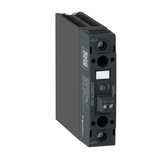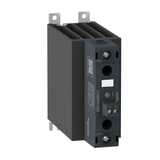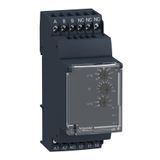Schneider Electric Relays
Schneider Electric Harmony, Socket, for RSB1A/RSB2A relays, 10 A, screw connectors, separate contact
Schneider Relays – Wholesale Distributor Category Page
Introduction to Schneider Relays in Professional Procurement
Within the field of electrical engineering and industrial control, Schneider relays occupy a significant role. As part of the Schneider Electric portfolio, these components provide switching, protection, and timing functionality across automation, energy distribution, and safety-critical applications. For procurement managers, selecting the right relay is not only a matter of technical fit but also of ensuring long-term reliability, ease of integration, and compliance with global standards.
A Schneider electric relay can be as simple as a compact general-purpose switching device, or as sophisticated as a programmable protection relay managing multiple parameters in a high-voltage environment. Buyers in wholesale and B2B supply often face a wide variety of models: from Schneider 24V relays used in low-voltage control panels, to heavy-duty Schneider protection relays designed for substations and industrial feeders. Each subtype carries its own specifications, advantages, and procurement considerations, making structured evaluation essential before placing a bulk order.
The following sections subdivide this category into three principal product groups for structured comparison:
- General-Purpose Schneider Relays
- Schneider 24V Control Relays
- Schneider Protection Relays
1. General-Purpose Schneider Relays
Technical Specifications
General-purpose Schneider relays cover a wide voltage and current range, usually supporting coil voltages from 12V to 240V AC/DC and contact ratings from 5A up to 20A. Typical configurations include SPDT and DPDT contact sets, allowing integration in diverse control logic. Versions with plug-in bases enable modular panel design, while sealed enclosures protect against dust and humidity.
Advantages
- Versatility in switching AC and DC loads
- Availability in both plug-in and PCB mount formats
- Proven durability with electrical life cycles exceeding 100,000 operations
- Wide compatibility with existing Schneider Electric relay sockets and accessories
Drawbacks
- Limited advanced functionality compared to electronic relays
- Mechanical wear over time in heavy-duty switching applications
- Not optimal for highly sensitive automation processes requiring microsecond response
Bulk Procurement Notes
For B2B buyers, these general-purpose models are often stocked in high volumes due to their role as standard replacements in control cabinets. Ordering through a wholesale distributor reduces per-unit cost significantly, especially when procurement is aligned with common coil voltage variants such as 24VDC and 230VAC. Buyers should also consider stocking universal bases and retaining clips to streamline field maintenance.
Typical Applications
- HVAC equipment and building automation panels
- Pump and motor starter circuits
- Lighting control systems
- General industrial machinery
2. Schneider 24V Control Relays
Technical Specifications
A Schneider 24V relay is a dedicated subgroup optimized for low-voltage control signals, widely used in PLC-based automation and DC-powered panels. These models generally feature:
- Coil rated precisely at 24V DC (some variants at 24V AC)
- Contact ratings from 6A to 10A
- Compact housing for DIN-rail or socket mounting
- Options for LED indicators and test buttons
Advantages
- Direct compatibility with 24V PLC outputs and sensors
- Low coil consumption, minimizing stress on control electronics
- Reliable switching of auxiliary loads such as pilot lights, alarms, or solenoid valves
- Safety-tested under IEC and UL standards for control circuits
Drawbacks
- Designed only for low-power switching, unsuitable for high-current loads
- Requires additional protection (fuses, breakers) when integrated into motor control circuits
- Limited environmental endurance compared to sealed heavy-duty relays
Bulk Procurement Notes
When ordering in bulk, buyers should identify whether their projects rely primarily on Schneider 24V relays with DC coils or those requiring 24V AC. In wholesale supply chains, DC variants dominate due to their integration with PLC systems and automation controllers. Procurement departments often purchase these in packs of 50–200 units for panel assembly lines.
Typical Applications
- PLC automation cabinets
- Conveyor belt logic controls
- Building security systems (alarms, access control)
- Low-voltage DC motor activation
3. Schneider Protection Relays
Technical Specifications
Schneider protection relays form the advanced tier of the product line. Unlike simple switching relays, these devices continuously monitor system parameters such as current, voltage, frequency, and temperature, and act automatically to prevent faults. Models cover a broad spectrum: from single-function overload relays to multifunctional digital relays used in substations.
Key features include:
- Current sensing up to several thousand amperes
- Trip curves aligned with IEC 60255 standards
- Adjustable time delays and sensitivity
- Communication interfaces for SCADA integration (Modbus, IEC 61850)
Advantages
- Enhanced equipment protection against overload, short-circuit, and ground fault
- Programmable logic for flexible trip coordination
- Compliance with utility-grade requirements for grid applications
- Reduced downtime and maintenance costs by preventing catastrophic failures
Drawbacks
- Higher upfront cost compared to mechanical relays
- Requires trained personnel for programming and configuration
- May need periodic firmware updates in digital models
Bulk Procurement Notes
For distributors and large-scale contractors, ordering Schneider electric relays in the protection range requires attention to project specifications. Bulk procurement is common in infrastructure projects (e.g., substations, data centers), where identical relay models are installed across multiple feeders. Volume discounts apply when ordering sets of protection relays alongside CTs (current transformers) and auxiliary trip accessories.
Typical Applications
- Medium- and high-voltage switchgear
- Industrial motor feeders above 100 kW
- Data centers and hospital critical loads
- Utility substations and renewable energy integration
Conclusion – Wholesale Distribution Value
For buyers in wholesale and B2B procurement, Schneider relays represent a broad yet structured product family: general-purpose switching relays for everyday control, 24V control relays for automation panels, and protection relays for critical infrastructure. Each subtype carries its own specifications, advantages, and challenges, but all share the Schneider hallmark of quality and global standardization.
A trusted distributor of Schneider relays ensures consistent stock availability, transparent rcbo prices, and technical guidance for project-based orders. Bulk procurement, aligned with technical requirements, not only reduces costs but also guarantees project uniformity and long-term operational reliability.
